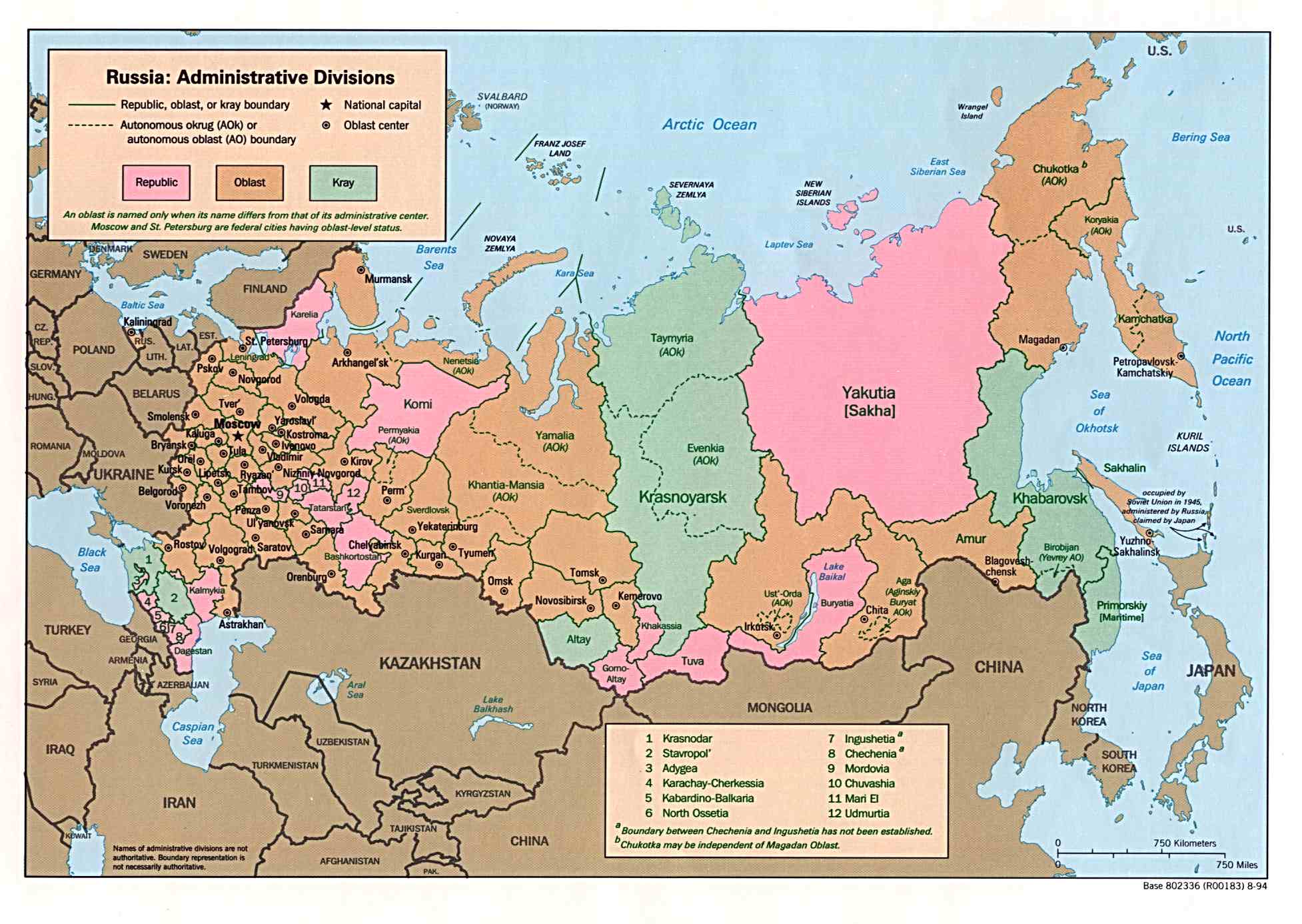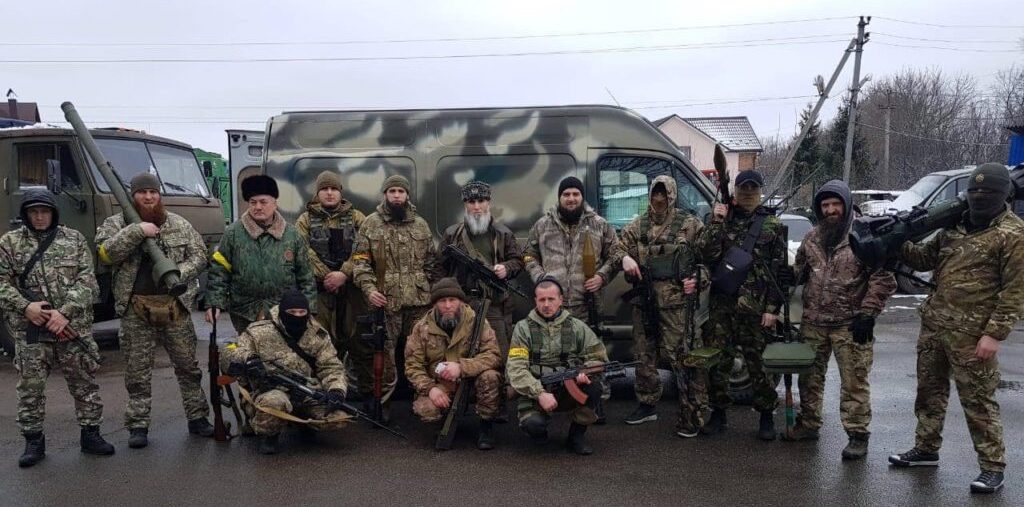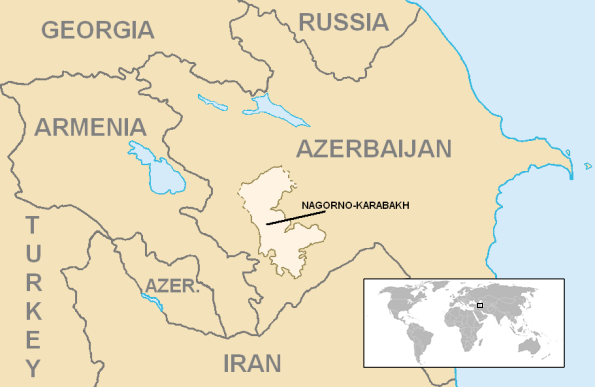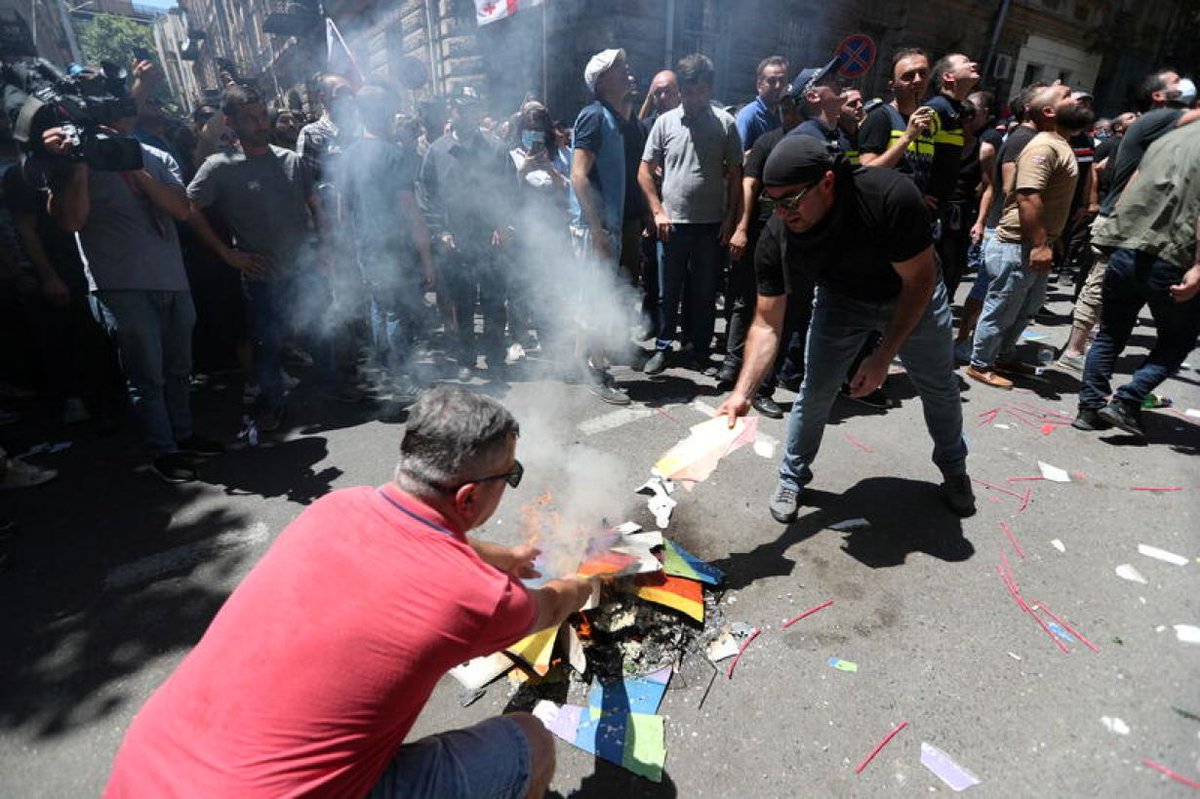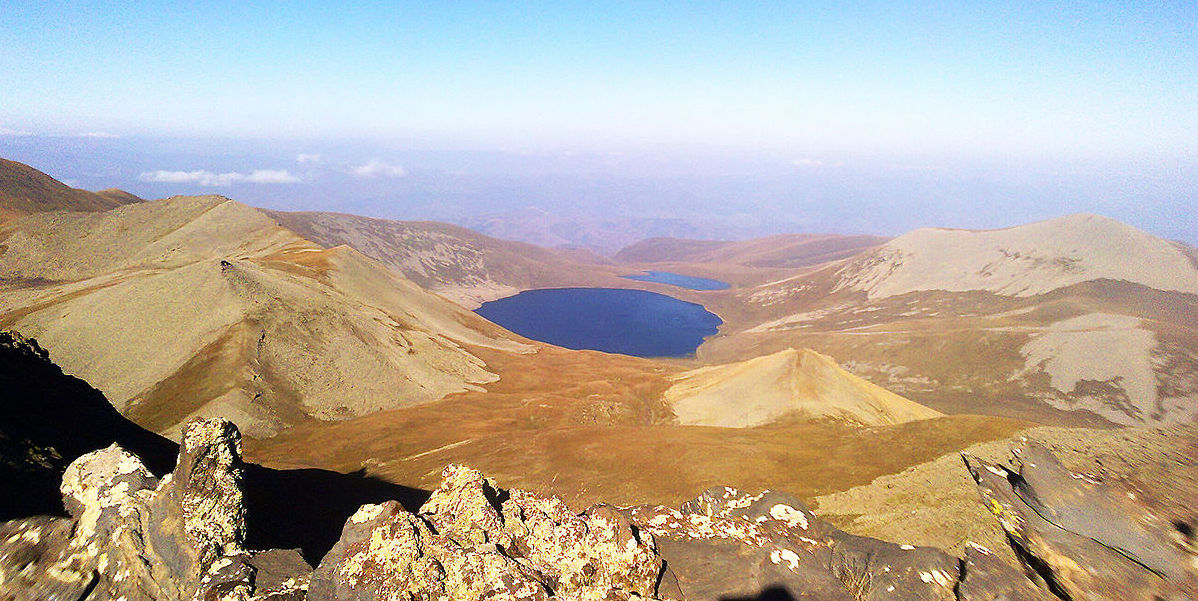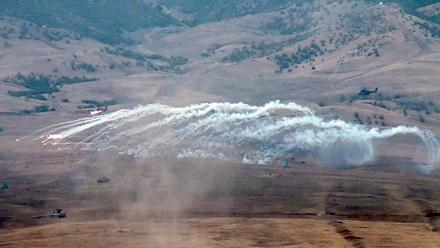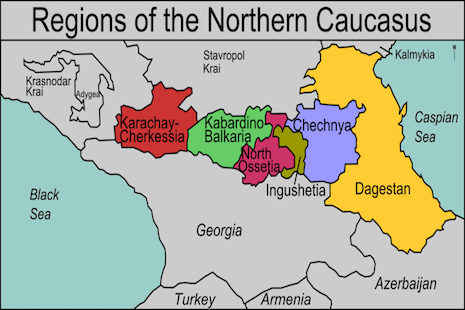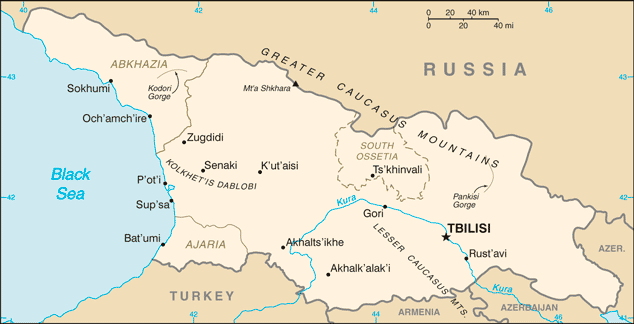
South Ossetia suspends referendum to join Russia
The de facto president of South Ossetia, Alan Gagloev, suspended a planned referendum to determine whether the breakaway region of Georgia should join the Russian Federation. The referendum, scheduled for July, had been ordered by decree of Gagloev’s predecessor Anatoly Bibilov, and was widely seen as a play to cement his grip on power. However, Bibilov lost his bid for reelection, bringing his rival Gagloev to the presidency. In calling off the vote, Gagloev said that the Kremlin must be consulted on “issues related to the further integration of South Ossetia and the Russian Federation.” Georgian officials had denounced any moves by South Ossetia to join Russia as “unacceptable.” (Map: PLC)



